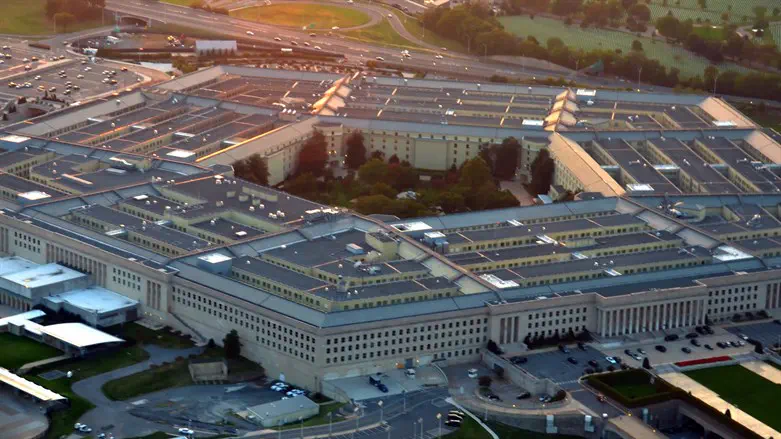
United States Assistant Secretary of Defense for Strategy, Plans, and Capabilities Mara Karlin, at Wednesday's third annual Middle East Institute CENTCOM Conference, addressed the Pentagon's Middle East policy amid the department's shift paradigm to attend to defense threats elsewhere.
Karlin stated that the National Defense Strategy stresses China and Russia as top priority threats, minimizing those in the Middle East. "As we implement this strategy, we must grapple with these tradeoffs around the world, including in the Middle East," said Karlin, but insisted, "The NDS is clear that the United States will remain engaged in the Middle East." Adding that "US interests are interwoven into the region."
The official explained the change in her department's Middle East policy and its move to diplomacy over military might: "Effective deterrence does not require the basing of hundreds of thousands of US troops in static formations; in fact, that would be ineffective deterrence. Our strength comes from our ability to leverage partnerships, coalitions, and in our agility – our ability to flow forces to where they are needed, swiftly and effectively."
Karlin added: "To be clear: this is a paradigm shift in our approach to the region – one that de-emphasizes unrealistic aims of transformation, or regime change, often pursued through unilateral military means, but focuses rather on our comparative advantages in partnerships and the fundamentals of sound policy: building coalitions, aligning ends and means, and setting clear and achievable aims."
According to her, this approach is already paying dividends as the region today, despite its many problems, is about as stable as it has been in several years. "The war in Yemen is experiencing the longest period of calm since the war began; Iraq is increasingly being integrated into the region, including through game-changing infrastructure projects with the GCC; the GCC itself is as united as it’s been in years; ISIS and al Qaeda remain under constant pressure; and a trend of diplomacy and de-escalation has taken root, backed by the deterrent power of US-led coalitions and partnerships," she adds.
She explains that the new paradigm requires advancing bilateral relationships in the Middle East but collectively taking steps toward integrating bilateral security relationships into a multilateral approach.
"Multilateralism is the relevant currency, and it requires a level of consultation and coordination, including some diplomatic give and takes, with our regional partners," she explains.
According to her, the paradigm also requires increased transparency by all involved with the US and each other. It also requires the US to be there for its partners when needed and a will to synchronize investments in communications infrastructure, defense platforms, and capabilities.
Middle Eastern aid to Ukraine
Assistant Secretary Karlin also addressed the Middle Eastern aid to Ukraine. "We are and have been for the last year asking all of our partners across the world to do what they can to support Ukraine.
In February, Saudi Arabia’s foreign minister and senior Saudi humanitarian and energy officials traveled to Kyiv for meetings with President Zelenskyy and Ukraine officials and formalized arrangements for $400 million of generators and energy support. This was the first ministerial visit from an Arab state to Kyiv since the war began.
Israel has also provided substantial humanitarian assistance to Ukraine, including over 100 tons of supplies and a field hospital. And recently, we have also seen President Zelensky attend the Arab League Summit.
These are positive steps from the Middle East region, and we hope to see more from our partners in the coming months."
An unshakable commitment
Karlin concluded by again stressing the DoD's commitment to the region. "Let me state clearly what President Biden has made clear himself: Our commitment to the Middle East region is unshakeable — because the region is vitally important to our shared future and deeply interwoven with American interests and those of our Allies.
The approach to the Middle East region that I have described requires tremendous commitment, tenacity, and persistent engagement at all levels of the US government, from the President on down, including Cabinet-level officials, the USCENTCOM Commander, and of course, the military officers and civil servants who work every day to make this vision a reality."
